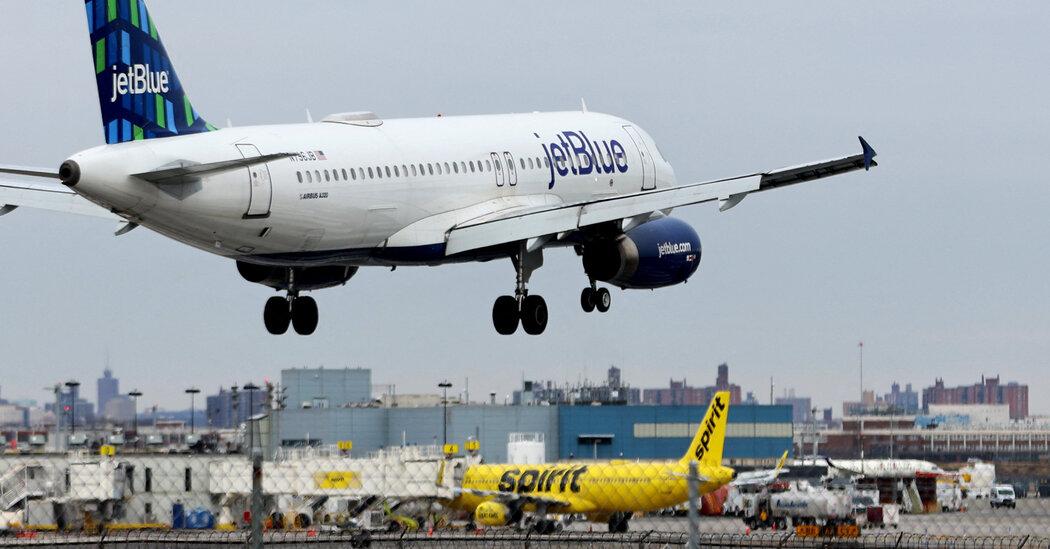But the Justice Department disagreed in its lawsuit, arguing that JetBlue has evolved from a disruptive force to an “ally of the big four” airlines. For example, the department pointed to the partnership between JetBlue and American in New York and Boston that allows them to more seamlessly sell seats on each other’s flights. The Justice Department sued to block that partnership, known as the Northeast Alliance, and a decision on that case is expected soon. The department said it would have sued to block the Spirit acquisition whether or not the Northeast Alliance was in place.
“This lawsuit is a very clear signal to the industry that no further consolidation is tolerable and that the government aims to block any further mergers or joint ventures,” said Diana Moss, the president of the American Antitrust Institute, a group that pushes for more aggressive enforcement of antitrust laws.
While JetBlue offers affordable ticket prices, Spirit offers even cheaper fares, making it a bigger threat to large airlines at the airports it serves, the department argued. Spirit is considered an “ultra low cost carrier,” a type of airline that works especially hard to keep costs and fares lower than those of most airlines. Among those carriers, Spirit stands out because it more frequently challenges the biggest airlines at their hub airports, according to the suit.
Under the deal, Spirit would largely be subsumed. The new airline would use the JetBlue brand, be based in New York City and be led by Mr. Hayes. It would have hundreds of planes and tens of thousands of employees. JetBlue has said that it plans to remove seats from Spirit’s densely packed planes to match its own configuration, which antitrust officials argued would make it difficult to keep costs and fares as low as Spirit has.
Mr. Hayes said that JetBlue would find ways to match Spirit’s savings without sacrificing customer service, such as using bigger planes, which can carry more passengers, on some routes.
“People should not assume the only way to get a cheap fare is with legroom that I think most people would view as very challenging,” he said. “We have a different model; we’re proud of that model. We would not be successful if we can’t cater to a customer group that is very price sensitive.”
To make money and offer cheap tickets, Spirit charges fees for services that other airlines offer at no additional cost. These can include boarding passes printed by an agent. That…
Click Here to Read the Full Original Article at NYT > Travel…
